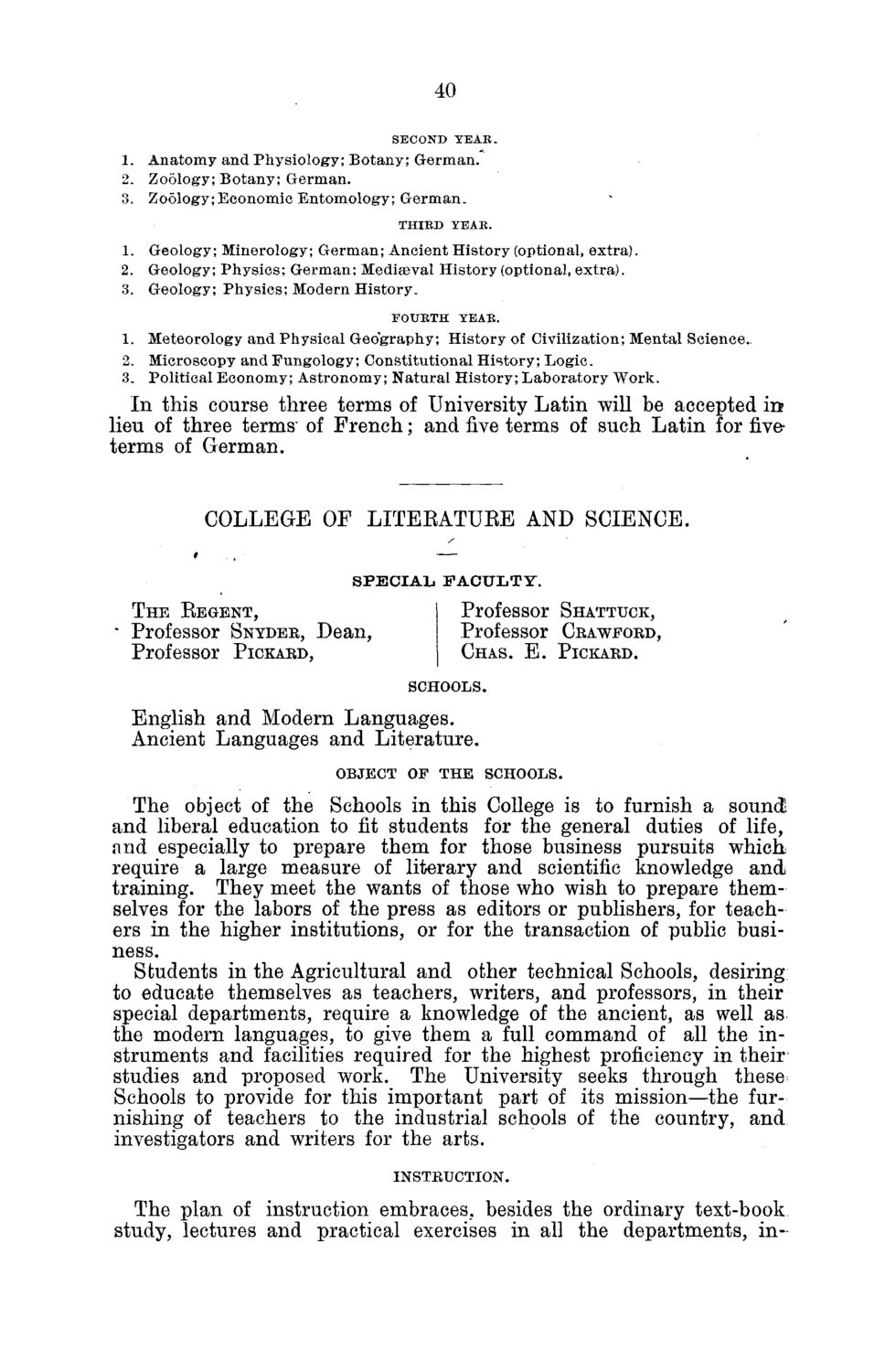| |
| |
Caption: Board of Trustees Minutes - 1882
This is a reduced-resolution page image for fast online browsing.

EXTRACTED TEXT FROM PAGE:
40 SECOND YEAR. 1. Anatomy and Physiology; Botany; German. 2. Zoology; Botany; German. 3. Zoology;Economic Entomology; German. THIRD YEAR. 1. Geology; Minerology; German; Ancient History (optional, extra). 2. Geology; Physics; German; Mediaeval History (optional, extra). 3. Geology; Physics; Modern History. FOURTH YEAR. 1. Meteorology and Physical Geography; History of Civilization; Mental Science,. 2. Microscopy and Fungology; Constitutional History; Logic. 3. Political Economy; Astronomy; Natural History; Laboratory Work. In this course three terms of University Latin will be accepted in lieu of three terms^ of French; and five terms of such Latin for fiveterms of German. COLLEGE OF LITEEATUEE AND SCIENCE. SPECIAL FACULTY. THE EEGENT, I | Professor SHATTUCK, * Professor SNYDER, Dean, Professor PICKARD, Professor CHAS. E. SCHOOLS. CRAWFORD, PICKARD. English and Modern Languages. Ancient Languages and Literature. OBJECT OF THE SCHOOLS. The object of the Schools in this College is to furnish a sound and liberal education to fit students for the general duties of life, and especially to prepare them for those business pursuits which require a large measure of literary and scientific knowledge and training. They meet the wants of those who wish to prepare themselves for the labors of the press as editors or publishers, for teachers in the higher institutions, or for the transaction of public business. Students in the Agricultural and other technical Schools, desiring to educate themselves as teachers, writers, and professors, in their special departments, require a knowledge of the ancient, as well as the modern languages, to give them a full command of all the instruments and facilities required for the highest proficiency in their studies and proposed work. The University seeks through these Schools to provide for this important part of its mission—the furnishing of teachers to the industrial schools of the country, and investigators and writers for the arts. INSTRUCTION. The plan of instruction embraces, besides the ordinary text-book, study, lectures and practical exercises in all the departments, in-
| |